
Coronary Artery Scan: What It Shows and Why It Matters for Prevention
Coronary Artery Scan: What It Shows, Who Needs It, and
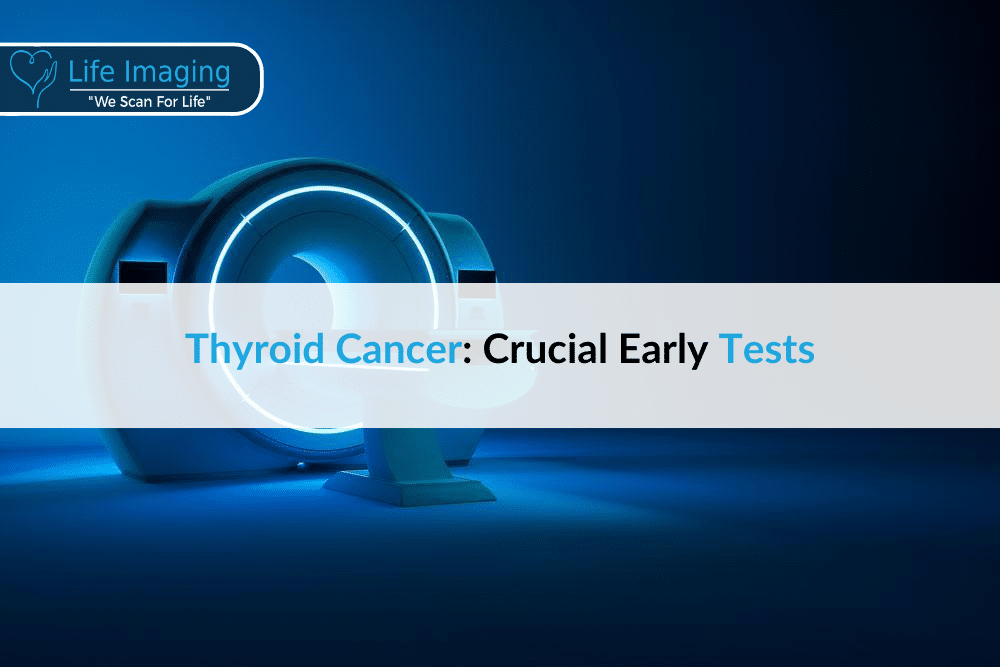
Thyroid cancer is a growing concern, affecting thousands of individuals in the United States every year. Located in the neck, the thyroid gland plays a vital role in regulating metabolism, heart rate, and hormone levels. When cancer develops in this small but significant gland, early detection becomes key to successful treatment and improved outcomes.
Orlando residents can take advantage of the advanced imaging services offered at Life Imaging Fla, an esteemed imaging center dedicated to the early detection of heart disease and cancer. Utilizing state-of-the-art technology, the professionals at Life Imaging Fla perform precise and reliable tests that can identify thyroid cancer in its earliest stages.
Early detection of thyroid cancer provides a better chance for treating the disease effectively. With more people becoming aware of the benefits of preventive health measures, there’s a growing demand for high-quality imaging services in Orlando.
This article delves into the essential early tests for detecting thyroid cancer, shedding light on diagnostics like ultrasounds, fine-needle aspiration biopsies, and other advanced imaging techniques. By emphasizing the importance of early detection, we aim to inform Orlando residents about the crucial steps they can take to ensure their thyroid health and well-being.
Thyroid cancer starts in the thyroid gland, which is located at the base of your neck. This gland produces hormones that regulate many important body functions, such as metabolism and heart rate. Thyroid cancer can develop when cells in the thyroid become abnormal and grow uncontrollably.
Early signs of thyroid cancer can be subtle and easily overlooked. Common symptoms include a lump in the neck, difficulty swallowing, and changes in your voice, like hoarseness. Some people may also experience swollen lymph nodes in the neck and persistent neck pain.
Recognizing these symptoms is important because early detection can make treatment more effective. If you notice any of these signs, it’s important to talk to a healthcare provider who can guide you on the next steps.
Detecting thyroid cancer early greatly increases the chances of successful treatment. When caught early, treatment options are generally more effective and less invasive. Early detection can also mean faster recovery and fewer complications.
Finding thyroid cancer early can prevent the cancer from spreading to other parts of the body. This not only simplifies treatment but also improves the overall prognosis. Even if thyroid cancer spreads, early treatment options can help control the disease better.
Early detection also means that less aggressive treatments may be needed. Less aggressive treatments can help preserve more of the thyroid’s function, making the recovery process smoother and quicker.
There are several tests that can help detect thyroid cancer at an early stage. These tests are essential for identifying the presence and type of thyroid cancer, allowing healthcare providers to recommend the best treatment plan.
Ultrasound imaging is often the first test used to examine the thyroid gland. This non-invasive test uses sound waves to create images of the thyroid. It can help identify abnormal growths or nodules in the gland.
During an ultrasound, a small device called a transducer is moved over the neck. The transducer sends sound waves that bounce off the thyroid, and these waves are then used to create a picture of the gland on a computer screen.
Ultrasound is safe and does not involve radiation, making it an ideal first step in early detection. It can also help determine if a nodule is solid or filled with fluid, which can be an important factor in diagnosing thyroid cancer.
If an ultrasound detects a suspicious nodule, a fine-needle aspiration biopsy (FNAB) might be recommended. This test involves using a thin needle to remove a small sample of cells from the nodule. The sample is then examined under a microscope to check for cancer cells.
FNAB is a simple procedure that can usually be done in a doctor’s office. It’s very accurate and helps determine if a nodule is benign or malignant. Understanding whether a nodule is benign or cancerous is crucial for deciding the next steps in treatment.
Blood tests are also important in diagnosing thyroid cancer. These tests can measure levels of thyroid hormones and thyroid-stimulating hormone (TSH) in your blood. Abnormal levels can indicate a problem with the thyroid.
In some cases, blood tests can detect the presence of specific markers that are linked to thyroid cancer. For example, increased levels of calcitonin may indicate medullary thyroid cancer. These blood tests can provide essential information that supports other imaging tests and biopsies.
A radioiodine scan can help provide more information about thyroid nodules. This test involves taking a small amount of radioactive iodine, which is absorbed by thyroid cells. A special camera then takes pictures of the thyroid, showing how the iodine is distributed.
Cancerous cells in the thyroid often absorb less iodine than normal cells. This difference can be seen on the scan and helps identify areas that might need further investigation. Radioiodine scans can be very useful for detecting the spread of thyroid cancer.
Using advanced imaging techniques for early detection of thyroid cancer offers several benefits. These methods are more accurate and can detect cancer at an earlier, more treatable stage.
Advanced imaging techniques, like high-resolution ultrasounds and detailed scans, provide clear and precise images. This accuracy helps in identifying even small abnormalities that might be missed by less advanced methods.
Early identification translates to more effective treatment plans. When thyroid cancer is detected early, it increases the chance of successful treatment and reduces the risk of the cancer spreading to other parts of the body.
Many advanced imaging tests are non-invasive and safe for patients. Procedures like ultrasounds and certain scans do not involve exposure to radiation, making them safer for repeated use if needed.
Safety is a primary concern, especially for patients who might need multiple tests over time. Non-invasive procedures ensure that the screening process is as comfortable and risk-free as possible.
Advanced imaging centers are equipped with the latest technology, allowing for quicker results. Fast results mean that any needed follow-up tests or treatments can be started sooner, improving the overall prognosis.
Quick results reduce the waiting period, providing peace of mind for patients and quicker overall care. Early action based on prompt test results can significantly improve treatment outcomes.
Different people might need to start screening for thyroid cancer at various ages or at different frequencies. It’s essential to know how often you should be screened based on age, family history, and other risk factors.
People with a family history of thyroid cancer or other thyroid conditions are at higher risk and might need to start screening at an earlier age. In inherited cases, regular screening might begin in childhood or young adulthood. Genetic counseling can also provide insights into your risk level.
Higher-risk individuals, such as those with a history of radiation exposure, should consult their healthcare providers to establish a suitable screening schedule. Regular check-ups and early tests can help catch any issues early.
For those in the general population, starting regular thyroid cancer screening around age 40 can be beneficial. An annual thyroid check-up is a good practice, especially for those with any symptoms or risk factors. If symptoms like a neck lump or difficulty swallowing are present, a doctor might recommend earlier or more frequent screenings.
Regular health checks can help identify thyroid issues before they become serious. Routine screenings, even for those without obvious risk factors, are important for maintaining thyroid health.
Adding thyroid cancer screening to your regular health routine helps in maintaining overall well-being. By being proactive about your health, you can ensure timely detection and treatment of any thyroid issues.
Incorporating thyroid tests into your annual health check-up can help catch any abnormalities early. Regular check-ups allow your healthcare provider to track any changes in your thyroid health over time.
Annual check-ups are a key part of a proactive health routine. They provide an opportunity to discuss any concerns and stay updated on your thyroid health status.
Staying informed about the symptoms of thyroid cancer ensures you act quickly if any arise. Early action can significantly improve outcomes and make treatment less complicated. Recognize symptoms, and don’t hesitate to seek medical advice if you notice anything unusual.
Awareness of symptoms allows for early detection and timely intervention. Being informed empowers you to take control of your thyroid health.
Maintaining a healthy lifestyle supports overall thyroid health. This includes a balanced diet, regular exercise, and avoiding exposure to harmful substances. While lifestyle alone cannot prevent thyroid cancer, it contributes to better overall health and reduces risk factors.
Healthy lifestyle choices are fundamental for long-term well-being. Prioritizing health in daily routines can enhance overall thyroid and general health.
Orlando offers several resources for individuals seeking early detection of thyroid cancer. Knowing where to go for screenings and follow-up care is essential for effective health management.
Finding a reliable imaging center in Orlando that specializes in early detection is crucial. These centers provide advanced imaging services and experienced healthcare professionals to ensure accurate and timely results.
Local imaging centers are equipped with the latest technology. Finding a trusted facility ensures high-quality care and precise diagnostic services.
Joining a support group or seeking counseling can provide emotional support during the screening process. Connecting with others who are undergoing or have undergone similar screenings can be very helpful.
Support groups and counseling services offer valuable resources. They provide emotional backing and practical advice, making the screening process easier to navigate.
Some people have a higher risk of thyroid cancer due to genetic factors. If thyroid cancer runs in your family, you might be at a greater risk of developing the disease. Understanding these genetic factors can help in early detection and management.
Genetic testing can identify mutations linked to thyroid cancer. These tests are usually recommended for individuals with a family history of thyroid cancer or related syndromes.
Genetic tests analyze DNA from blood samples to look for specific mutations. If the test finds a mutation, healthcare providers can recommend screening and preventive actions. This helps in catching thyroid cancer at an early stage if it develops.
Certain inherited syndromes increase the risk of thyroid cancer. These include Multiple Endocrine Neoplasia type 2 (MEN 2) and Familial Medullary Thyroid Carcinoma (FMTC). Individuals with these syndromes should have regular thyroid screenings starting at a young age.
Understanding these syndromes can help families take the necessary steps for early detection. Regular screenings and genetic counseling provide a proactive approach to managing risk.
A healthy lifestyle contributes a lot to thyroid health. While lifestyle changes alone cannot prevent thyroid cancer, they help support overall well-being and reduce risk factors.
Eating a balanced diet rich in fruits, vegetables, whole grains, and lean proteins supports thyroid health. Certain foods, like those high in iodine, can help the thyroid function properly. Avoiding too much-processed food and sugary drinks helps keep the whole body healthy, including the thyroid.
A balanced diet ensures that the body gets essential nutrients. Proper nutrition supports the thyroid and helps maintain a healthy weight, which reduces the risk of various health issues.
Regular exercise keeps the body healthy and supports a well-functioning thyroid. Activities like walking, swimming, and yoga can improve overall health and boost energy levels. Exercise also helps manage stress, which can positively impact thyroid function.
Making exercise a part of your daily routine improves physical health and mental well-being. Staying active helps regulate hormones and maintain a healthy metabolism.
Limiting exposure to harmful substances like tobacco and excessive alcohol is beneficial for thyroid health. Smoking and heavy drinking have been linked to various cancers, including thyroid cancer. Reducing these habits can decrease health risks.
Choosing healthier habits makes a big difference in long-term health. Staying away from harmful substances supports not just thyroid health but overall well-being.
Recent advances in thyroid cancer treatment contribute to better patient outcomes. Understanding these treatment options helps patients and their families make informed decisions.
Targeted therapy uses drugs to identify and attack cancer cells while minimizing damage to normal cells. This type of therapy is designed based on the specific genetic mutations found in the cancer cells, making it more effective.
Targeted therapies are often used for advanced thyroid cancer that doesn’t respond to other treatments. These drugs help stop the growth and spread of cancer cells, improving the quality of life for patients.
Radioactive iodine therapy is a common treatment for certain types of thyroid cancer. This therapy involves taking radioactive iodine orally, which is then absorbed by the thyroid cells. The radiation helps destroy cancerous cells with minimal impact on the rest of the body.
This form of treatment is effective for many patients and usually has few side effects. It targets cancer cells specifically, reducing the risk of damage to other tissues.
Surgery is often the first line of treatment for thyroid cancer. There are different types of surgeries depending on the extent of the cancer. A thyroidectomy involves removing part or all of the thyroid gland, while a lobectomy removes only a portion of the gland.
Choosing the right surgical option depends on the type and stage of the cancer. Surgery provides a high chance of removing cancer completely, making it a common recommendation for early-stage thyroid cancer.
Receiving a thyroid cancer diagnosis can be overwhelming. Emotional support and counseling can provide crucial help during this time. Connecting with others, sharing experiences, and getting professional support can make a significant difference.
Joining a support group allows patients to connect with others facing similar challenges. Sharing experiences and advice can provide comfort and practical tips for managing the condition and treatment.
Support groups often meet in person or online, making them accessible to many people. They provide a sense of community and help lessen feelings of isolation.
Professional counselors offer expert guidance and emotional support. They help patients and their families navigate the emotional challenges that come with a thyroid cancer diagnosis. Counseling can help manage stress, anxiety, and depression.
Professional counselors are trained to address the specific needs of cancer patients. Their expertise provides valuable coping strategies that improve mental health and overall well-being.
Although rare, thyroid cancer can also occur in children. Pediatric thyroid cancer may present different challenges and require specialized care. Early detection and treatment are critical for better outcomes.
The symptoms of thyroid cancer in children can be similar to those in adults. They might include a lump in the neck, trouble swallowing, and changes in voice. Parents should be aware of these signs and seek medical advice if they notice any symptoms.
Early detection in children is important for effective treatment. Regular pediatric check-ups that include thyroid screening help identify any issues early.
Treating thyroid cancer in children often involves a combination of surgery, radioactive iodine therapy, and other treatments. Pediatric specialists adapt these treatments to suit children’s needs, ensuring they are safe and effective.
Specialized pediatric care provides treatment options tailored to children’s unique needs. Comprehensive care plans support both physical and emotional health during treatment.
Children treated for thyroid cancer require long-term follow-up care. Regular check-ups are essential to monitor thyroid function and detect any recurrence early. Lifelong follow-up ensures sustained health and well-being.
Long-term care includes regular medical visits and possibly ongoing medication. Consistent follow-up helps maintain good health after treatment.
Ongoing research continues to improve thyroid cancer detection and treatment. New discoveries and innovations offer hope for better outcomes and expanded treatment options.
Participating in clinical trials gives patients access to new treatments that are not widely available. These trials test the safety and effectiveness of new drugs and therapies.
Clinical trials help advance medical knowledge and provide new options. Participation supports research and can offer additional treatment choices for patients.
Researchers are developing innovative therapies to improve thyroid cancer treatment. These include new drugs, advanced surgical techniques, and cutting-edge diagnostic tools. Blood tests that find specific proteins or genetic changes can catch cancer early.
Innovative therapies hold promise for more effective treatment with fewer side effects. Advances in medical technology and research contribute to better care and improved patient outcomes.
Personalized medicine tailors treatment to the individual characteristics of each patient. This approach considers genetic, environmental, and lifestyle factors to design customized treatment plans.
Personalized medicine offers targeted and effective care. Understanding the unique aspects of each patient ensures treatments are as effective as possible.
Receiving a thyroid cancer diagnosis can be overwhelming. It’s important to take steps to manage the stress and emotions that come with it. Understanding the diagnosis and knowing the next steps can help make the process more manageable.
Once diagnosed, learn as much as you can about your specific type of thyroid cancer. There are several types, including papillary, follicular, medullary, and anaplastic thyroid cancer. Each type has different characteristics and treatment options.
Understanding your diagnosis helps you know what to expect. Ask your healthcare provider for detailed explanations and write down any questions you have. This can help make your appointments more productive and informative.
Getting a second opinion can provide additional perspectives on your diagnosis and treatment options. It can help confirm the diagnosis and possibly present other treatment methods you had not considered.
Second opinions are valuable and can offer peace of mind. Consulting another expert helps ensure you have explored all available options.
Having a strong support network is essential. Family, friends, and support groups can provide emotional support and practical help. They can assist with everyday tasks, offer encouragement, and be there to talk when you need it.
Building a support network helps reduce feelings of anxiety and isolation. Rely on loved ones and consider joining a support group for people experiencing similar situations.
After treatment, regular follow-up care is essential to monitor your recovery and check for any signs of recurrence. This ongoing care ensures you stay healthy and catch any issues early.
Follow-up appointments are crucial for tracking your health post-treatment. Your healthcare provider will likely schedule regular tests and exams to monitor your thyroid function and overall well-being.
Regular check-ups help catch potential problems early. They are a key part of your long-term health plan after treatment.
Monitoring thyroid hormone levels is important after thyroid cancer treatment. Treatment may impact your hormone levels, and you may need medication to manage these changes. Regular blood tests can help ensure your hormone levels stay balanced.
Monitoring helps manage and adjust any necessary medications. Keeping track of hormone levels ensures your body functions properly after treatment.
Post-treatment, emotional and psychological support remains important. Counseling, support groups, and mental health services can help you cope with the emotional challenges that may arise after treatment.
Mental health support helps maintain overall well-being. Addressing psychological and emotional needs ensures a balanced recovery.
Navigating insurance and financial matters is an important aspect of managing thyroid cancer care. Understanding coverage and seeking financial assistance can help reduce stress and make treatments more accessible.
Review your health insurance plan to understand what is covered. Some insurance plans may cover screenings, treatments, and follow-up care, while others might require out-of-pocket expenses.
Understanding your coverage helps plan financially for your treatment. Contact your insurance provider for a detailed explanation of your benefits.
If your insurance does not cover all costs, there are financial assistance programs available. Organizations and charities offer support to help cover medical expenses for those in need.
Seeking financial assistance ensures you can access necessary treatments. Research available resources and apply for programs that can help.
Planning and budgeting for medical expenses can help manage the financial impact of treatment. Keeping track of expenses and setting a budget ensures you stay on top of costs.
Budgeting helps prepare for ongoing medical expenses. Proper planning reduces financial stress and allows you to focus on recovery.
After successful treatment, it’s essential to maintain a healthy lifestyle to support overall well-being. Making healthy choices contributes to recovery and long-term health.
Continuing to eat a balanced diet helps support your overall health. Focus on consuming a variety of fruits, vegetables, whole grains, and lean proteins. Staying hydrated and avoiding processed foods are also important for maintaining good health.
A balanced diet provides the nutrients needed for recovery. Proper nutrition supports overall well-being and helps maintain a healthy weight.
Regular physical activity helps keep the body strong and healthy post-treatment. Engage in activities you enjoy, like walking, swimming, or yoga. Exercise helps manage stress, improve energy levels, and promote overall health.
Staying active supports physical and mental health. Incorporating regular exercise into your daily routine has numerous benefits.
Post-treatment, it’s important to stay vigilant about your health. Continue attending regular check-ups, follow your doctor’s recommendations, and monitor any new symptoms promptly.
Monitoring ensures any changes in health are addressed quickly. Staying proactive helps maintain long-term well-being after treatment.
Orlando offers various community resources to support individuals dealing with thyroid cancer. Knowing where to find help can provide additional support and improve quality of life.
Orlando has several support groups for those affected by thyroid cancer. These groups offer a sense of community and provide valuable insights and emotional support.
Local support groups connect you with others facing similar challenges. Participating in these groups offers emotional comfort and practical advice.
Orlando is home to many healthcare facilities specializing in cancer care. These centers offer comprehensive services, from screenings and diagnosis to treatment and follow-up care.
Healthcare facilities provide access to specialized care. Knowing where to go ensures you receive high-quality treatment.
Educational programs in Orlando offer information and resources about thyroid cancer. These programs provide workshops, seminars, and materials to help you understand the condition and manage your health.
Educational programs empower you with knowledge. Accessing these resources helps you make informed decisions about your care.
Families and caregivers play a crucial role in supporting individuals with thyroid cancer. There are several resources to help them provide effective care and support.
Caregiver support groups in Orlando provide valuable resources and emotional support for those caring for loved ones with thyroid cancer. These groups offer a space to share experiences and gain practical tips.
Support groups make caregiving less isolating. They offer emotional and practical support for caregivers.
Educational workshops for caregivers offer training and information on how to best support their loved ones. These workshops cover everything from medical care to emotional support strategies.
Educational workshops empower caregivers with knowledge. They provide essential tools for effective caregiving.
Respite care services in Orlando offer temporary relief for caregivers. These services provide professional care for your loved one, allowing you to take a break and recharge.
Respite care services help manage caregiver stress. They ensure that caregivers can take care of themselves while still providing support.
Technology offers various tools to help manage thyroid cancer care. From mobile apps to online resources, these tools provide convenient access to information and support.
Health tracking apps monitor symptoms, medication schedules, and appointment reminders. These tools help you stay organized and on top of your health.
Health tracking apps provide convenience and improve management. Staying organized helps ensure you stay on track with your care plan.
Online support communities connect individuals with thyroid cancer from around the world. These platforms offer emotional support, information, and a chance to share experiences.
Online support communities offer a broader network. They provide additional support and valuable insights.
Virtual consultations offer access to healthcare providers from the comfort of your home. These virtual appointments allow for regular check-ups and consultations without the need to visit in person.
Virtual consultations offer convenience and flexibility. They ensure continuity of care while accommodating your schedule.
Keeping updated about advancements in thyroid cancer research and treatment is crucial. Staying informed helps you make better decisions about your health care.
Follow reputable sources for the latest research updates on thyroid cancer. Understanding new treatments and advancements can provide hope and inform your care options.
Research updates keep you informed about new developments. Staying updated offers additional insights into emerging treatments.
Attending educational conferences provides in-depth knowledge about thyroid cancer. These events feature experts sharing the latest research and treatment approaches.
Educational conferences offer valuable learning opportunities. They provide comprehensive information and networking opportunities.
Reading scientific publications and journals can provide detailed information about thyroid cancer research. These resources offer insights into the latest discoveries and treatments.
Scientific publications offer detailed knowledge. Accessing them helps you stay informed about advancements in the field.
Thyroid cancer is a serious condition that requires vigilant monitoring and proactive care. Early detection through regular screenings and understanding genetic risk factors play a crucial role in managing thyroid health. Advances in treatment and the availability of support resources contribute to better outcomes and quality of life for patients. Living a healthy lifestyle and staying informed about the latest advancements in thyroid cancer care are essential steps in supporting long-term health.
Thyroid cancer can affect anyone, including children and adults, making regular screenings even more vital. In Orlando, multiple resources are available, from specialized healthcare facilities to community support groups, ensuring comprehensive care for those facing this condition. Emotional support and mental health services also play a pivotal role in navigating the journey of thyroid cancer, highlighting the importance of holistic care.
At Life Imaging Fla, we emphasize the importance of early detection in managing thyroid cancer. Our state-of-the-art imaging services ensure accurate and timely screenings, helping you stay proactive about your health. By prioritizing regular screenings and seeking out advanced care options, you can effectively manage your thyroid health and improve your quality of life.
Don’t wait to take control of your health. Schedule your thyroid screening with Life Imaging Fla today and ensure you have the best tools and expertise supporting you in your healthcare journey. Early detection and mindful care can make all the difference—take the first step toward a healthier future now.

Coronary Artery Scan: What It Shows, Who Needs It, and
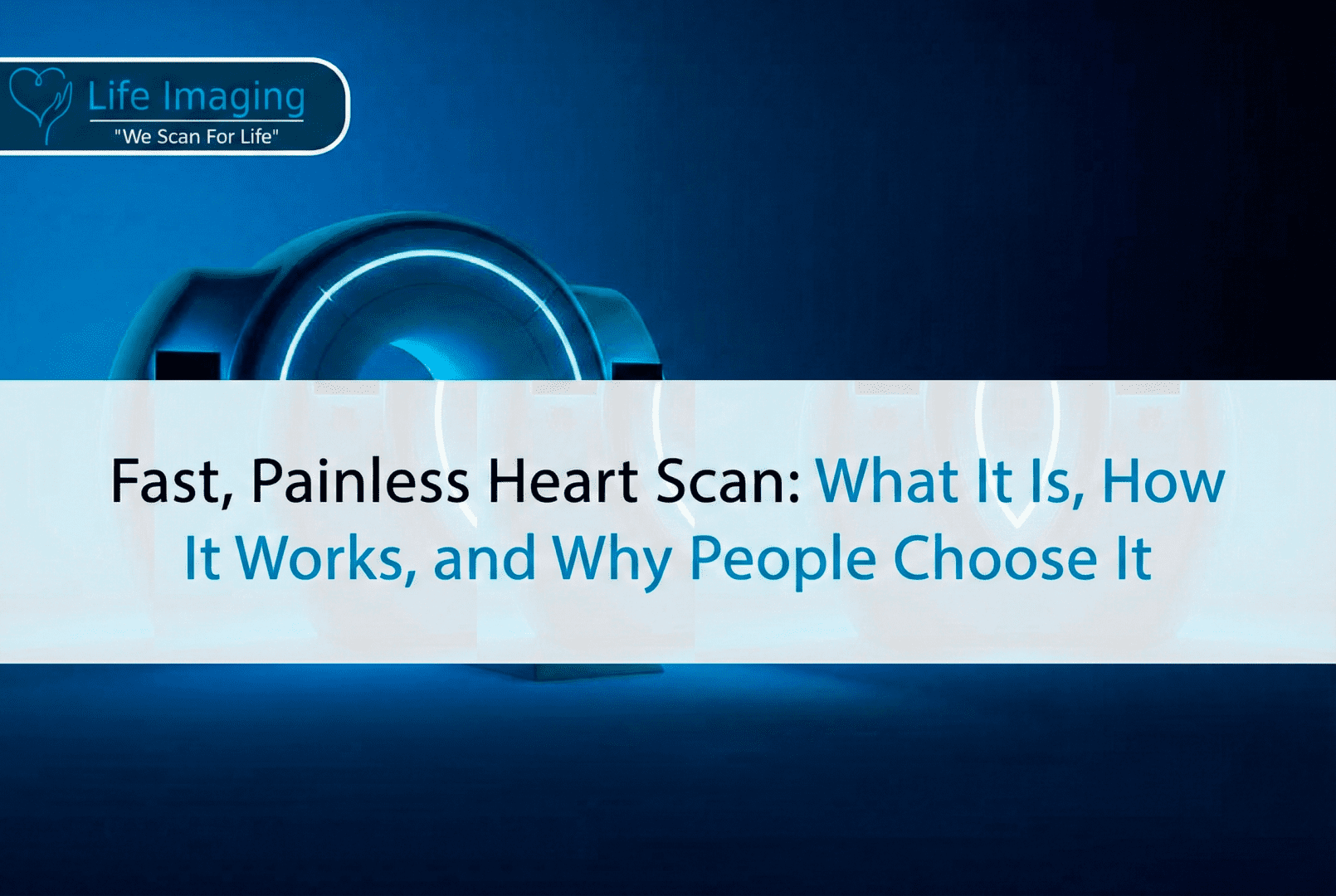
Fast and Painless Cancer Scan: What It Really Means PREVENTIVE
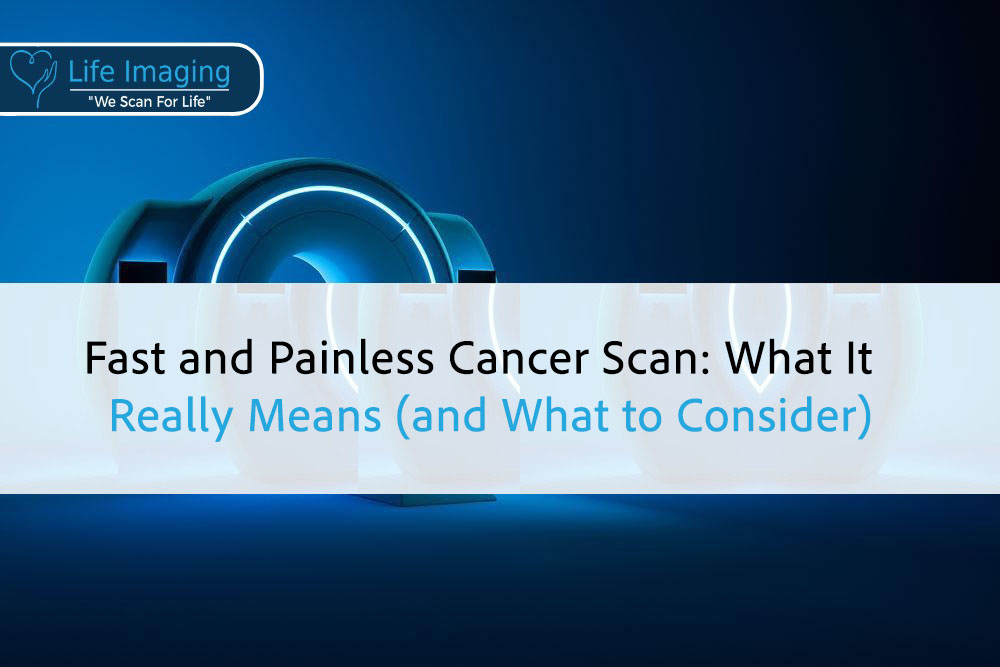
Fast and Painless Cancer Scan: What It Really Means (and
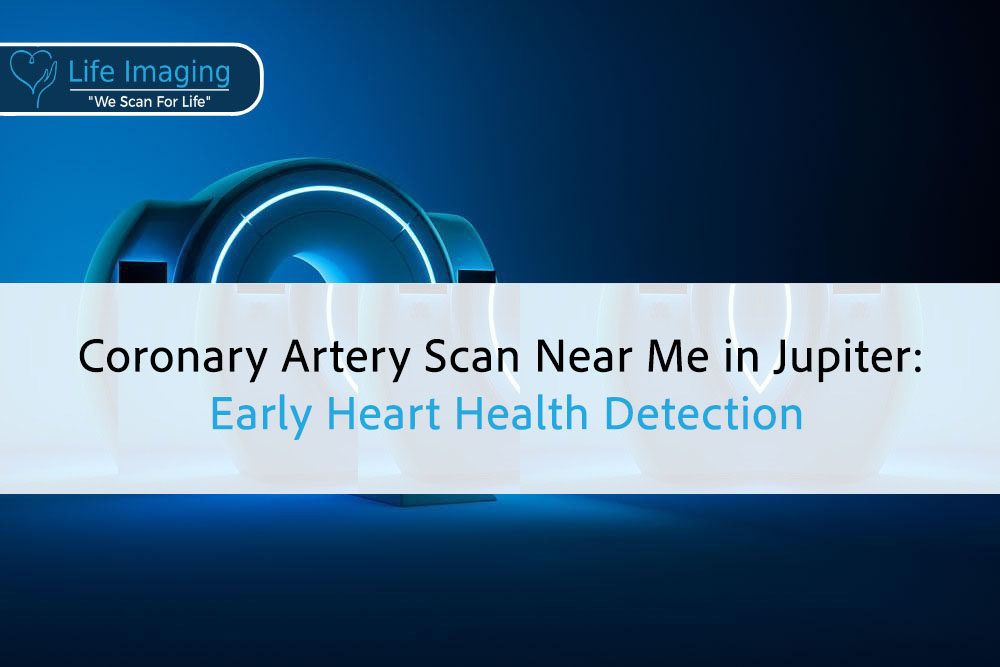
Introduction Your heart works hard every second of the day,
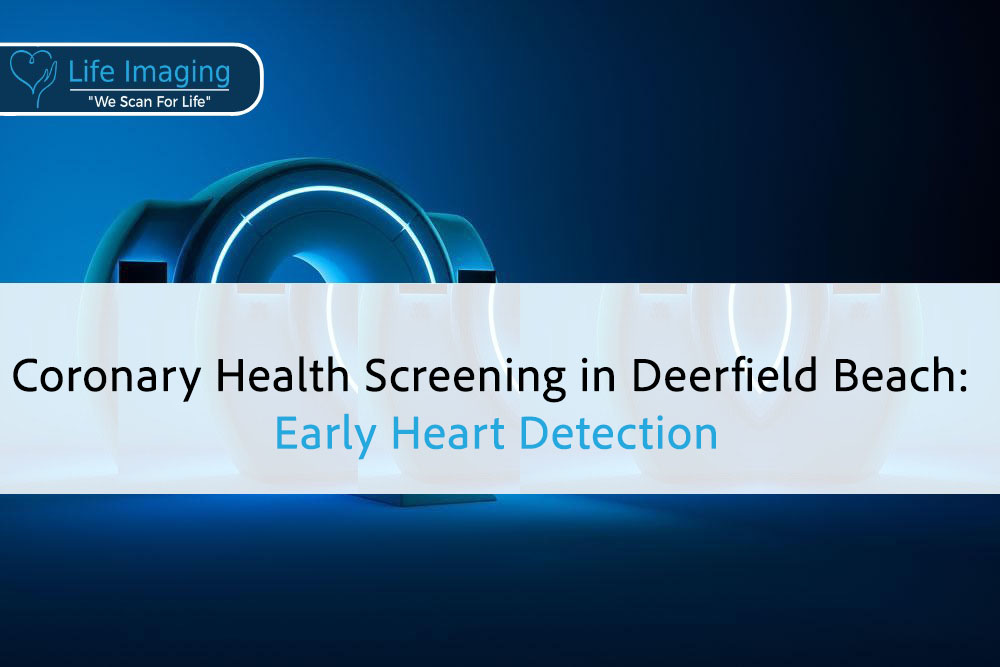
Introduction Your heart works around the clock, but changes inside

Introduction Your heart works nonstop, often without a single complaint.

* Get your free heart scan by confirming a few minimum requirements.
Our team will verify that you qualify before your scan is booked.
Copyright © 2025 Life Imaging – All Rights Reserved